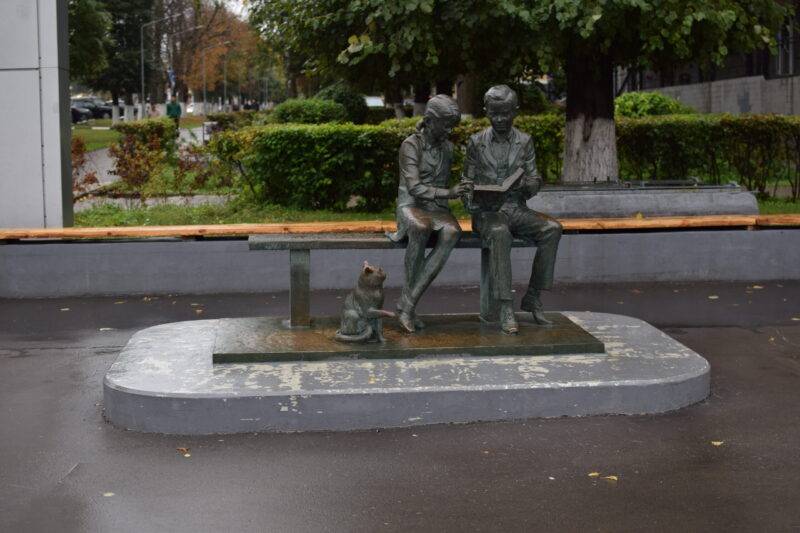Reporting and journalism have been dead for a long time now. It’s even banal to say that, but I need to start this post somewhere. And their demise is actually old news. It didn’t happen yesterday or with the advent of the Internet. Nope.
It happened when news in general became a daily expectation marketed as necessity. Indeed, can you imagine a 19th century daily that isn’t published on some day for the lack of news? Or that comes out as one-pager with a theater event poster for the night and a big No News Today sign covering the reverse? I guess the answer is “no”.
I have no exact date for you, but journalism and reporting in their pure form have been long extinct or are on the verge of it. What we have been seeing for more than a hundred years now is a continuous news mill that has a lot in common with social media activity when a celebrity, influencer or famous blogger posts as often as possible to get likes and/or donations.
Likes are not a new thing, if you think about it. When a newspaper stopped giving sensations (99.999% fake news), its circulation dropped. If an evening news show is not funny, snappy, colorful, bloody and loud enough, its ratings plummets immediately and so does revenue. Is it any different from likes online? And isn’t it the cornerstone of media economics in its current form?
I cannot even say that it is quantity over quality. It is actually worse. It is continuous intensity above all. The audience has turned into a pavlovian thing asking for more intense stuff every day from all the media. More war porn, more gossip, more sex scandals, etc. Before people were anxious to get their morning paper or hurried to their TV-sets in the evening, now they spend hours mindlessly surfing the Net for more “information” that’s in fact not informative at all.
It is an industry, but it is not journalism or reporting. It is panem et circenses in its worst form, and as I started thinking about it, I understood that those poor Romans were not made like that, their news-lust was a totally manufactured thing. And it is that process of audience grooming and bottle-feeding is now called journalism/reporting.
I can even see a food chain here. Here it is:
- bottom level (herbivores, if you will): actual makers of news. Those people who participate in the event: soldiers in current wars, celebrities who are not smart enough, socialites, politicians who are being set up, etc.
- level one (carnivores): entry level staff in the media: editors, reporters, photographers, etc. Those who make an original news item.
- level two (parrots): talking heads. I offer them a separate level only because they are in general paid well. Some of them have or develop connections.
Princess Diana case is a great illustration of the levels above. She was at the bottom and was eaten by paparazzi. Had she been more aware of the system, she might have acted as Megan Markle, who managed to combine the these levels in a single family business. But I’m digressing.
- level three (carrion-eaters): loyal analysts onscreen and offscreen, bloggers and other loyal agents reusing news for their own secondary content.
- level four (farmers): those who own trees, rabbits, parrots, cows and other animals in the list. Maybe the Deep State, maybe not so deep. They manage the information tide, order fakes, etc. Level four is not a uniform thing either, there is competition and mutual hostility there too.
I don’t think that this chain formed in a day. It’s more like an actual biological evolution: first the media environment formed and began to reign minds. At this point the only motive was profit of the media. Then it was perceived as a great tool for brainwashing and new levels built up.
There is no place for a real journalist or reporter in this chain. An independent agent with a real relevant story will be seen as an infection, an autoimmune disease and will be immediately destroyed or inoculated (say, buy a lump sum). It is a growing industry powered by capitalist principles that developed serious survival mechanisms at all levels.
So, as a result we, the audience of the world, daily get huge portions of high-calorie, but low value processed news and fast reports causing mental obesity, so to speak.
What can be done about it? I have no idea, but probably refusing to consume might work. Maybe it will force them to at least stop. Maybe not.



I refuse to consume (the same way I stopped shopping at Amazon and never used social networks). I read books instead. But I’m probably an exception.
btw I (re)read more and more the books from my childhood and early teenage-hood, Enid Blyton, Richmal Crompton… and ho boy! how they shed light on the rot of the present.
Maria, I think you’ll like this Australian Artist and Blogger. Ian’s father introduced me to her long ago. Kaitlin Johnstone is in the lead fighting for the freedom of Julian Assange and writes much in detail about the Western media.
I repeat this quote by her far and wide, “We live in a Narrative Matrix controlled by Plutocratic and military Institutions who have created an ILLUSION of democracy.”.
Blessings to you my dear.
https://caityjohnstone.medium.com/the-us-could-use-some-separation-of-media-and-state-ec0667edb2eb
Yes, I followed her when had a Twitter account
Former US Marine Major and Weapons Inspector Scott Ritter is touring Russia doing his book tour. He’s well received and having a blast! Yesterday he visited Spetsnazz University and got Shoveling Lessons, Lol! Seriously, he got a lesson in the Free Fall Simulator and time on the firing range trying out many different weapons. He did really good like a Marine should.
You can see the video on Andrei Martyanov’s website smoothiex12.com.
Another thing, although you can establish some parallels with 19th press keep in mind the big difference: back then there were hundreds of business men who owned daily and weekly titles and they had different political/social/religious views that were spread through their papers. Today only a handful of multinationals control most of what people read and hear.
You have that right. Oligarchs own the media and the politicians.
Like you, I also read books. I have since I learned to read. My mother was an avid reader and instilled my love of books in me. Mostly I read history, biographies and the classics.
I also enjoy science fiction and dystopic science fiction. Like the Bible, they are warnings.
Kind regards.
Like you, I also read blogs. I see you sometimes on Andrei Martyanov’s blog. His podcasts are informative and he can be damn funny sometimes.
I must confess I use Facebook to communicate with family. Some live in other countries. I comment on YouTube and Twitter to try to educate those who are like I used to be, a gullible Neocon Dupe. It was Ian’s Dad who set me straight and he posts much on Twitter. Ian and Maria have taught me much too.
yes, it’s monopolization